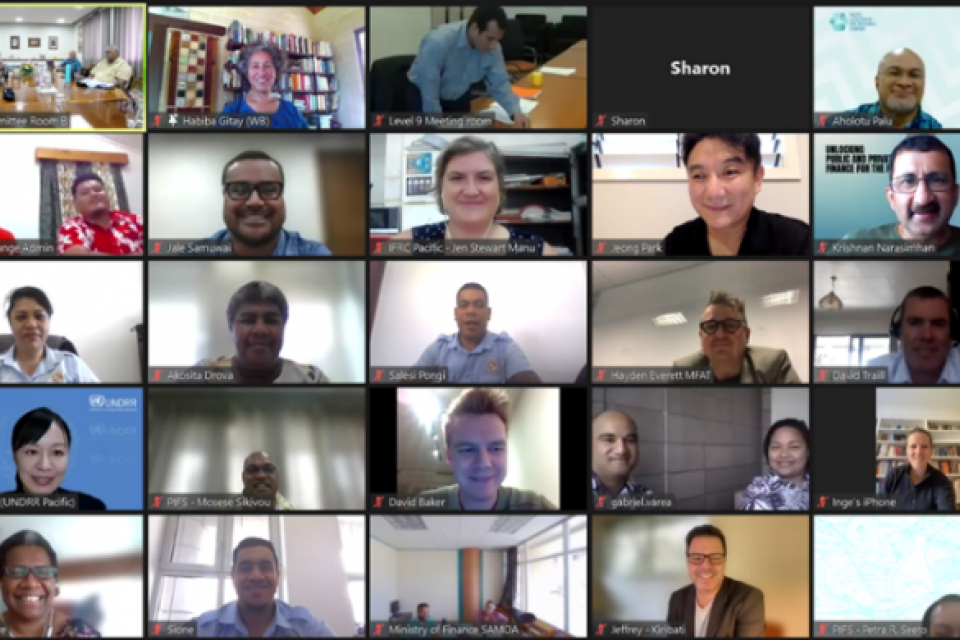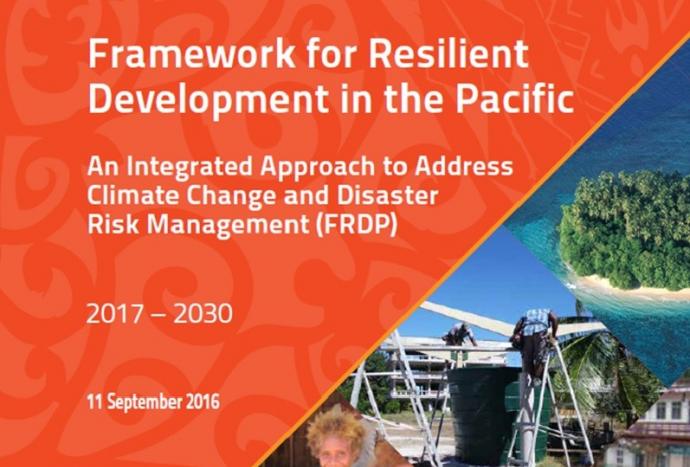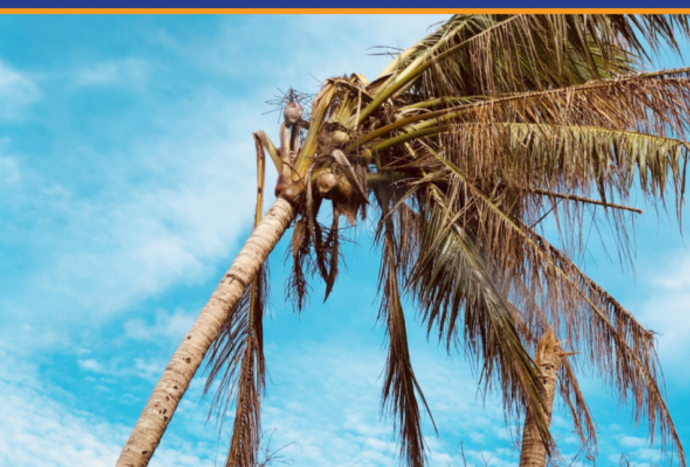Priorities for Capacity Building in Disaster Risk Finance Identified

A regional approach is helping Pacific countries to strengthen their financial protection against disasters. This co-ordination, along with knowledge brokering, private sector engagement and enabling disaster risk financing at the national level are priorities recently identified for disaster risk finance capacity building in the Pacific.
The Pacific Resilience Partnership (PRP) Disaster Risk Financing Working Group convened a two-day virtual workshop from 16-17 November. Participants included officials from Ministries of Finance, National Disaster Management Offices, and representatives of development partners and donors.
Speaking at the opening of the workshop, Dr. Habiba Gitay, Senior Climate Resilience Development Specialist from World Bank mentioned that “having the Disaster Risk Finance Working Group endorsed by Forum Economic Ministers Meeting in July 2021 has been extremely important as it not only garners support from development partners but provides a platform for just-in-time learning amongst varied stakeholders.”
Mr Garth Henderson, Secretary of the Ministry of Finance in Cook Islands commented that we do need to maintain a focus on disaster risk financing, despite our attention being consumed with our efforts to recover from the economic impacts of COVID-19.
“Not only do we need to recover our economies, but we also need to sustain our economies from the continuing onslaught of climate change, and we need to plan for and respond to disasters of all nature. Disaster Risk Financing has an important role to play,” He said.
Mr. Henderson commented that “at the forefront of national efforts will be the Ministries of Finance. At times like this when national resources are stretched the support by the Pacific Islands Forum Secretariat (PIFS), other regional organisations and development partners and the opportunity to work together in regional arrangements such as the PRP Disaster Risk Financing Working Group is a welcome boost to national efforts.”
Participants shared what their respective countries are doing in addressing financial protection against disasters. They also highlighted the importance of having the Working Group to effectively coordinate disaster risk financing activities in the region and support country ownership as key to driving implementation of activities.
Director of the Department of Disaster Management in Tuvalu, Mr Luka Selu said that promoting private sector engagement is an area that is still evolving in Tuvalu and the government is working to ensure that the private sector is fully engaged in resilience building.
Mr. Selu also stressed the importance of ensuring that monitoring and evaluation is included in the working group’s priorities so that progress can be monitored.
The workshop was jointly organised by PIFS, Pacific Catastrophe Risk Insurance Company (PCRIC) and UN Capital Development Fund.
Media Contacts:
Sharon Tohaimae
PRP communications focal point
Pacific Islands Forum Secretariat
+ 679 331 2600



